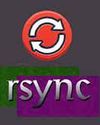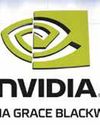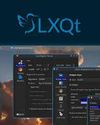
ChatGPT has been widely adopted across various sectors because it can understand and generate human-like text. Its applications range from customer service automation, where it can handle enquiries and provide support 24/7, to content creation, aiding in drafting articles, emails, and reports. Its integration into educational tools facilitates personalised learning experiences, and it assists developers by debugging code and generating programming-related content.
Open source AI models
Open source models such as META's LLAMA2 and Microsoft's Phi2 offer a foundation for building customised AI solutions, democratising access to cutting-edge technology. The development of offline AI solutions, particularly those based on open source projects like Ollama and OllamaWebUI, marks a significant step forward in AI. These tools not only provide the benefits of AI models like ChatGPT but also ensure that organisations can innovate and maintain control over their data, comply with privacy regulations, and operate without the need for constant internet connectivity.
This guide will walk you through the fastest DIY method to set up an offline, on-prem ChatGPT-like tool using Ollama and Ollama-WebUI.
Setting up your OS environment
Before diving into the installation of your offline, on-prem ChatGPT tool, it's crucial to ensure that your environment meets the necessary system requirements and that Debian Linux 12 is correctly installed on your machine, whether it's a physical server or a virtual machine (VM).
To ensure smooth operation of your offline AI solution, your system should meet the following minimum specifications.
▪ CPU: Latest model (Intel i5, Xeon, or AMD EPYC) with at least 8 cores
▪ RAM: 16GB to start with or more
▪ HDD storage: 100GB or more
Esta historia es de la edición March 2024 de Open Source For You.
Comience su prueba gratuita de Magzter GOLD de 7 días para acceder a miles de historias premium seleccionadas y a más de 9,000 revistas y periódicos.
Ya eres suscriptor ? Conectar
Esta historia es de la edición March 2024 de Open Source For You.
Comience su prueba gratuita de Magzter GOLD de 7 días para acceder a miles de historias premium seleccionadas y a más de 9,000 revistas y periódicos.
Ya eres suscriptor? Conectar

Red Hat unveils Red Hat OpenShift Virtualization Engine
Red Hat OpenShift Virtualization Engine is a new edition of Red Hat OpenShift that offers a dedicated solution for organisations to leverage the virtualisation capabilities already available within Red Hat OpenShift.

Spring AI: A Door to GenAI Heaven for Java Developers
Let's explore the Spring AI framework and its advantages, and look at how it is helping Java developers adopt AI.

Significant security vulnerabilities drive the release of Rsync 3.4
Rsync, the widely used utility for incremental file transfers and synchronisation, has released version 3.4. This update isn't packed with exciting new features but is instead critical due to several newly disclosed security vulnerabilities.

NVIDIA puts Grace Blackwell at every AI developer's fingertips
NVIDIA has introduced NVIDIA Project DIGITS, a groundbreaking personal AI supercomputer designed to empower AI researchers, data scientists, and students NVIDIA® NVIDIA GRACE BLACKWELL with the immense capabilities of the NVIDIA Grace Blackwell platform.

Top Tools for DevOps, Cybersecurity, and Cloud Management in 2025
In 2025, organisations will continue to rely on open source tools to retain a competitive edge. We look at why the best tools for DevOps, cybersecurity and cloud management will remain relevant and how best to integrate them into your organisation.

CREW: Open source platform to improve human-AI interaction
As human-AI collaboration deepens, critical questions arise: How should humans and AI complement one another? What kind of feedback enhances AI training? How can trust in AI be optimised to balance collaboration without over-reliance? Researchers at Duke University are addressing these challenges through CREW-an innovative platform designed to advance human-AI teaming.

Red Hat completes the acquisition of Neural Magic
Red Hat, Inc., has announced the completion of its acquisition of Neural Magic, a trailblazer in software and algorithms that accelerate generative AI (GenAI) inference workloads.

The Do's and Don'ts for Software Architects
Here's a list of best practices for software architects as well as the common mistakes they should try not to fall prey to.

openSUSE's Tumbleweed introduces Wayland support for the LXQt desktop environment
The openSUSE Project has announced that its Tumbleweed rolling release distribution now includes Wayland support for users of the LXQt desktop environment.

A Guide for Software Architects: Common Mistakes and Best Practices
Software architects play an invaluable role in the digital transformation of an organisation. To make a mark, they must imbibe certain qualities and avoid common errors.